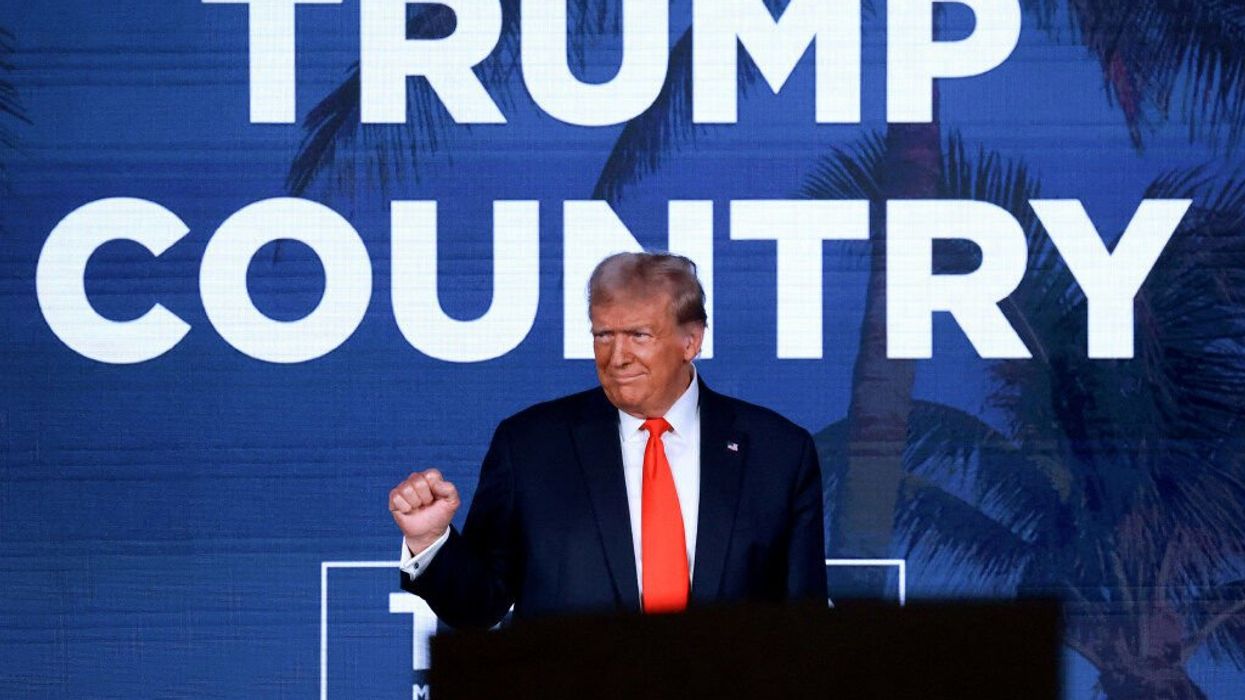
Joe Burbank/Orlando Sentinel

Former President Donald Trump scored another legal victory in his pursuit of the Republican Party's 2024 presidential nomination after the Michigan Supreme Court declined to hear a case about removing him from the state's primary ballot.
Four Michigan voters filed a case to remove Trump from the primary ballot, citing the former president's alleged role in the incident at the U.S. Capitol on January 6, 2021. The suit filed by the voters claimed that Trump's actions amounted to "insurrection or rebellion" and that he was therefore ineligible to become president.
Section 3 of the 14th Amendment of the U.S. Constitution — a clause added to the Constitution nearly 160 years ago in the wake of the Civil War and the attempted secession of many Southern states — strictly prohibits those who have engaged in such "insurrection or rebellion" from holding most federal offices. Notably, president and vice president are not included among the list of offices forbidden to insurrectionists and rebels, though "elector of President and Vice-President" is.
On Wednesday, Michigan's highest court declined to hear the case submitted by the four voters. "We are not persuaded that the questions presented should be reviewed by this Court," Justice Elizabeth M. Welch wrote in the order.
The state supreme court's order agreed with a decision earlier this month from the Michigan Court of Appeals, which similarly declined to hear the case.
Both courts gave the same basic reason for declining to hear the case: Michigan Secretary of State Jocelyn Benson (D) does not have the authority to remove Trump from the ballot in this instance. Welch's order called the secretary of state's authority in determining who qualifies for the ballot "limited" and claimed that Benson "lacks the legal authority to remove a legally ineligible candidate from the ballot once their name has been put forward by a political party in compliance with the statutes governing primary elections."
The order did express some agreement with the appellants' argument that political parties are state actors "subject to constitutional restrictions" but did not rule on such an argument since there were no political parties named in the litigation. Appellants may "renew their legal efforts as to the Michigan general election later in 2024 should Trump become the Republican nominee for President of the United States or seek such office as an independent candidate," the order said.
The order also discussed the recent ruling from the Colorado Supreme Court, which barred Trump from the primary ballot in that state. On a 4-3 vote, Colorado's high court ruled that Trump is ineligible for the ballot because of Section 3 of the 14th Amendment. Trump has promised to appeal that case to the U.S. Supreme Court, and the Colorado Republican Party has already indicated it might move from a primary vote to a caucus system to circumvent the court's ruling.
Michigan's Supreme Court claimed that Colorado election laws differ from Michigan election laws in "a material way" since Colorado law requires that candidates be "qualified" for office to be eligible for the ballot. Michigan law has no such stipulation, the order said.
Like Colorado, Michigan is considered a swing state, and its electoral votes may help decide the 2024 presidential election. The Michigan primary will be held on February 27. The Colorado primary will be held on March 5, also known as Super Tuesday.
The supreme court of Minnesota ruled last month that Trump could not be barred from the state's primary ballot. The secretary of state in Maine is still considering whether to remove Trump from the ballot, so litigation in that state may be forthcoming as well.
Republican presidential candidate John Castro has filed lawsuits attempting to bar Trump from ballots in more than a dozen states, but so far, the courts have not ruled in his favor. "After careful consideration, the Court finds that this case must be dismissed for lack of subject-matter jurisdiction because Castro lacks standing to bring his claim," wrote U.S. District Judge Douglas Rayes regarding Castro's lawsuit in Arizona.
Like Blaze News? Bypass the censors, sign up for our newsletters, and get stories like this direct to your inbox. Sign up here!